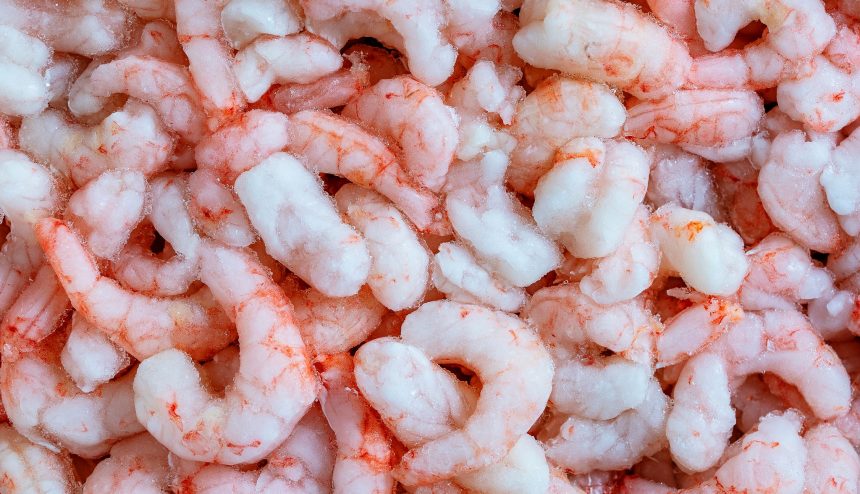Walmart issues recall of shrimp amid fears of radioactive contamination, a development that has triggered alarm among consumers, regulators, and health experts. The retail giant’s decision highlights growing concerns about seafood safety, food imports, and supply chain transparency in the United States. As the story unfolds, many Americans are asking how radioactive contamination entered the food chain, how dangerous the shrimp may be, and what this means for future seafood consumption.
This article dives deep into the Walmart shrimp recall, exploring the background, health implications, regulatory oversight, industry responses, and the broader consequences for global food safety.
Background of the Walmart Shrimp Recall
The recall was announced after routine food safety checks flagged potential radioactive contamination in a batch of frozen shrimp sold in Walmart stores across multiple states. According to preliminary reports, the shrimp may have originated from fisheries located in regions exposed to industrial waste or oceanic contamination near Asia.
While Walmart has not disclosed the exact number of shrimp packages recalled, industry insiders suggest that thousands of pounds of shrimp may have been distributed before the contamination was detected. Consumers who purchased these products have been urged to stop consuming them immediately and return them for a refund.
What Does Radioactive Contamination Mean in Seafood?
Radioactive contamination in seafood typically occurs when marine organisms are exposed to water that contains radioactive particles. These particles can come from several sources, such as:
Nuclear power plant leaks or accidents (e.g., Fukushima in Japan).
Industrial waste dumping into oceans and rivers.
Improper disposal of radioactive medical or research materials.
Shrimp, being bottom feeders, are particularly susceptible to absorbing contaminants. Once inside the human food chain, even trace levels of radioactive isotopes can pose long-term health risks.
Health Risks Linked to Radioactive Seafood
The U.S. Food and Drug Administration (FDA) has strict standards for radioactive contamination in imported seafood. Even so, consumer fears are understandable, as radioactive isotopes can cause serious health issues.
Some of the potential risks include:
Increased cancer risk: Radiation exposure can damage DNA, increasing the likelihood of cancer.
Immune system suppression: Long-term exposure weakens immunity, making people more vulnerable to infections.
Reproductive health effects: Radiation may affect fertility and pregnancy outcomes.
Organ damage: Depending on the isotope, radiation can accumulate in bones, thyroid, or other organs.
Dr. Hannah Lewis, a radiation safety expert at Johns Hopkins University, commented: “Even small levels of radioactive contamination in food are cause for concern because radiation accumulates over time. It’s not just about a single meal; it’s about consistent exposure.”
Walmart’s Official Statement
Walmart issued a press release assuring customers that the recall was voluntary and precautionary, and that only a limited batch of shrimp was affected.
The statement read: “Walmart prioritizes the health and safety of its customers. We are working closely with suppliers, federal regulators, and independent laboratories to ensure the integrity of our seafood products. Customers who purchased the affected shrimp may return it for a full refund.”
Despite these assurances, social media platforms have been flooded with consumer complaints, with many demanding greater transparency about the origins of Walmart’s seafood supply.
The Role of Federal Regulators
The FDA, along with the U.S. Department of Agriculture (USDA) and Environmental Protection Agency (EPA), has begun investigating the case. Early indications suggest the contaminated shrimp originated from overseas suppliers, though officials have not disclosed specific countries.
The U.S. imports over 80% of its seafood, much of it from Southeast Asia, where monitoring of industrial waste disposal and nuclear safety standards may be less stringent than in the U.S.
Senator Tom Reynolds of Florida, a state heavily reliant on seafood imports, remarked: “This incident should serve as a wake-up call. America cannot blindly rely on foreign seafood without rigorous testing. Our citizens deserve to know that what they put on their dinner plates is safe.”
Consumer Response and Public Outrage
The news has sparked outrage among Walmart shoppers, many of whom rely on the retailer for affordable seafood. Parents in particular have voiced concern about the risks of feeding contaminated shrimp to their children.
On platforms like Twitter and Facebook, hashtags such as #WalmartShrimpRecall and #SeafoodSafety have trended, with thousands of posts questioning the safety of imported seafood in general.
Consumer advocacy groups, including FoodWatch USA, have called for stricter import inspections and clearer labeling of seafood origins.
Historical Context: Radioactive Seafood Controversies
This is not the first time seafood safety has been questioned. After the 2011 Fukushima nuclear disaster in Japan, concerns about radioactive contamination in Pacific seafood spread worldwide. Although regulatory agencies claimed imported seafood was safe, skepticism lingered.
Similarly, environmental organizations have long raised alarms about illegal dumping of industrial waste into rivers and oceans in developing countries. Shrimp, tuna, and shellfish are often at the center of these debates because they are consumed in large quantities globally.
The Walmart recall thus taps into longstanding anxieties about globalization, food safety, and corporate responsibility.
Economic Impact of the Recall
The financial consequences of the Walmart shrimp recall could be significant. For Walmart, a company that earns billions annually in grocery sales, even a limited recall can hurt consumer trust.
Seafood suppliers may also suffer if import bans or heightened inspections slow down supply chains. Already, some analysts warn that shrimp prices in the U.S. could rise if imports are restricted.
Economist Laura Mitchell explained: “Seafood recalls ripple through the economy. When major retailers like Walmart lose consumer confidence, it impacts suppliers, restaurants, and even fishing communities worldwide.”
Broader Implications for the Seafood Industry
The recall raises pressing questions about how seafood is tested and labeled. Critics argue that federal agencies lack the resources to thoroughly inspect every shipment, leaving gaps that can be exploited.
Food industry analyst Mark Sanderson noted: “Americans want cheap seafood, but cheap often comes with hidden costs. Until we strengthen oversight, incidents like the Walmart shrimp recall will continue to occur.”
Some experts are now calling for country-of-origin labeling reforms and mandatory radiation testing for all imported seafood.
Steps Consumers Can Take
For consumers worried about radioactive contamination, experts recommend several steps:
Check recall lists published by the FDA and Walmart before consuming frozen shrimp.
Purchase domestic seafood when possible, especially from U.S.-certified fisheries.
Look for third-party certifications, such as Marine Stewardship Council (MSC) labels.
Stay informed by following FDA alerts and seafood safety watchdog organizations.
Nutritionist Dr. Emily Roberts emphasized that while shrimp can be a healthy source of protein, “consumers should balance seafood intake with safety concerns, especially during active recalls.”
The Future of Seafood Safety in the U.S.
The Walmart shrimp recall may push lawmakers and regulators to enact stricter standards. Proposals include:
Expanding FDA inspection budgets.
Increasing penalties for suppliers who fail safety checks.
Requiring retailers like Walmart to disclose full supply chain information.
Investing in domestic aquaculture to reduce reliance on imports.
With seafood consumption steadily rising in the U.S., food safety experts believe systemic reforms are inevitable.
FAQs
Why did Walmart recall its shrimp?
Walmart issued the recall after testing indicated possible radioactive contamination in certain batches of frozen shrimp.
Is eating radioactive shrimp dangerous?
Yes. Radioactive contamination, even at low levels, poses health risks such as cancer, organ damage, and immune system suppression.
Where did the contaminated shrimp come from?
Officials have not confirmed the exact country of origin, but reports suggest it was imported from Asia.
What should I do if I bought Walmart shrimp recently?
Stop consuming it immediately, check Walmart’s recall list, and return the product for a refund.
How common are seafood recalls?
Seafood recalls occur periodically due to contamination risks, but radioactive contamination recalls are rare and alarming.
Will shrimp prices increase because of this recall?
Possibly. Supply disruptions and stricter inspections could raise shrimp prices in the U.S. market.
How can I buy safer seafood?
Look for domestic seafood, buy from trusted suppliers, and check for certifications like MSC or ASC.
Conclusion
The Walmart shrimp recall amid fears of radioactive contamination underscores the fragile balance between global trade, food affordability, and consumer safety. While Walmart has moved quickly to address the issue, lingering questions about supply chains and regulatory oversight remain.
Consumers are demanding greater transparency, and lawmakers are beginning to take notice. Ultimately, this recall is more than just a corporate embarrassment—it is a reminder that food safety cannot be taken for granted in a world where supply chains stretch across continents.
Until stricter standards and accountability measures are in place, shoppers may continue to question whether the seafood on their dinner plates is as safe as it should be.

















